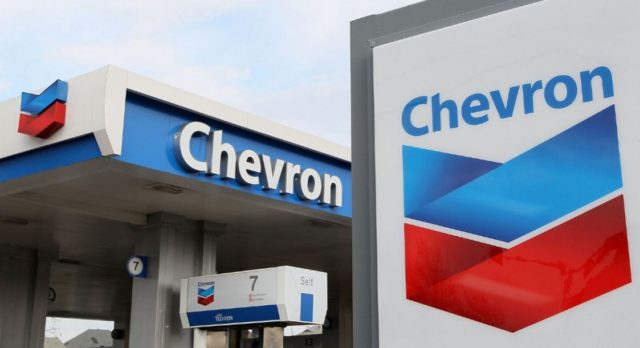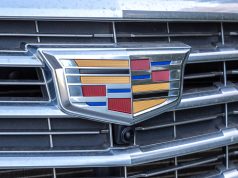Presently entering its 24th year, a worldwide lawful war trying to hold Chevron Corp. subject for oil contamination in the Amazon has highlighted fights in courts going from the U.S. to Ecuador to Canada. In a hit to Ecuadorian villagers who battle the organization sullied their territories, an Ontario judge a week ago shielded Chevron’s Canadian resources from being seized as a major aspect of the battle.
That is a major triumph for the second-biggest U.S. fossil fuel organization, in light of the fact that in 2011 Chevron lost a court case in Ecuador over the subject of obligation. To the extent the Ecuadorian legal is concerned, Chevron owes some $9.5 billion, or more enthusiasm, to the villagers. Be that as it may, the vitality goliath, battling that the gigantic judgment was acquired by extortion, has declined to pay. Chevron has no benefits in Ecuador, so there’s nothing there for offended parties to seize. That is the reason the case relocated north to Canada, where an auxiliary has operations the villagers might want to sell to cover their decision.
Be that as it may, in an exceptionally specialized 35-page sentiment, Judge Glenn Hainey of the Ontario Superior Court of Justice made a sharp refinement between Chevron the parent enterprise and Chevron Canada the backup. Chevron Canada wasn’t the respondent in Ecuador and as a lawfully isolate substance, the judge held, can’t be considered in charge of its parent’s liabilities.
Chevron hailed the choice. “By and by, the offended parties’ endeavors to authorize their deceitful judgment have been censured,” R. Hewitt Pate, Chevron’s VP and general insight, said by means of email. “We are sure that any locale that looks at the truths of this case and the offense submitted by the offended parties will locate the Ecuadorian judgment ill-conceived and unenforceable.”
Karen Hinton, a New York-based representative for the villagers claimed that her customers will bid Hainey’s decision, and anticipated a quick inversion. “The villagers hope to continue in the not so distant future with their seizure of Chevron’s resources for constrain the organization to regard numerous [Ecuadorian] court judgments that thought that it was” at risk for monstrous tainting.”
The long story that conveys us to this minute started in 1993 with a claim documented in New York government court against Texaco (which Chevron gained in 2001). Brought for poor country Ecuadorians, the grumbling was expelled by U.S. courts and restarted in 2003 in Ecuador. After eight years, it prompted to the multibillion-dollar decision now at issue. Chevron countered that any contamination coming about because of Texaco’s exercises in the rain woods was the obligation of the Ecuadorian government to tidy up—and, in any occasion, the decision was corrupted by the wrongdoing of the villagers legal counselors, drove by a New York-based lawyer named Steven Donziger.
To commute home that last point, Chevron sued Donziger in 2011, getting a U.S. judgment that he’d disregarded hostile to racketeering laws by transforming the Ecuadorian suit into what might as well be called a blackmail plot. A year ago, a government requests court maintained the decision, finding that Donziger and his partners occupied with pressure, extortion, and gift in Ecuador. The choices have the impact of making it inconceivable for the villagers to gather on the Ecuadorian decision in the U.S. That conveys us to Canada.
The lawful complexities in this branch of the prosecution multiply. In a different piece of his Jan. 20 administering, Judge Hainey said that if by one means or another the Ecuadorians prevail with regards to pushing ahead with their activity in Canada—for instance, if a higher court switched his finding that the auxiliary ought to be protected—then the oil organization would be permitted to battle resource seizures by indicating the proof of misrepresentation introduced in the U.S. racketeering case.
In the mean time, on different fronts, the offended parties have begun lawful procedures to uphold the dubious Ecuadorian judgment in both Argentina and Brazil. Chevron may have won this fight, however the lawful war hints at no easing up.
Here is a little background info on the corporation to bring forward its history- provided by Encyclopedia. One of the numerous offspring of the Standard Oil Trust, Chevron Corporation has developed from its unassuming California birthplaces to wind up distinctly a noteworthy power in the worldwide oil showcase. Its emotional disclosures in Saudi Arabia gave Chevron a solid position on the planet’s biggest oil area and powered 20 years of record profit in the after war time. The ascent of the Organization of Petroleum Exporting Countries (OPEC) in the mid 1970s denied Chevron of its agreeable Middle East position, bringing about impressive nervousness and a decided scan for new local oil assets at an organization long reliant on remote supplies. The company’s 1984 buy of Gulf Corporation at $13.2 billion, the biggest mechanical exchange to that date, dramatically increased Chevron’s oil and gas holds however neglected to take its benefit record back to pre-1973 levels of execution. By the mid-1990s, be that as it may, Chevron was posting solid profit, a consequence of higher fuel costs and the organization’s rebuilding and cost-cutting endeavors.










